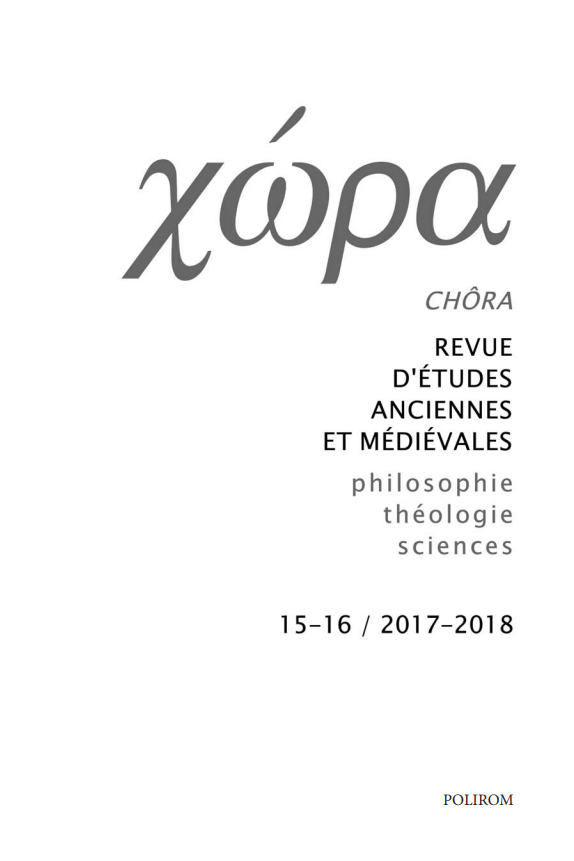Y a-t-il, selon Plotin, une energeia du Bien?
Is there an energeia of the Good according to Plotinus?
Author(s): Laurent LavaudSubject(s): Philosophy, Ancient Philosphy
Published by: EDITURA POLIROM S.A.
Keywords: Plotinus; energeia; good; ancient philosophy;
Summary/Abstract: The aim of this paper is to shed light on the tension between two conflicting perspectives concerning the Good in the philosophy of Plotinus. According to the first perspective, Plotinus claims that the the first principle completely transcends the energeia, which is strictly limited to the Intellect. According to the second, he ascribes a kind of immanent energeia to the One. I will examine the two series of texts in which these two perspectives are present and advance two hypotheses to explain the divergence between these two viewpoints. Firstly, the meaning of the term energeia is not unequivocal, depending on whether it is strictly limited to the intelligible realm or ascribed to the One. Secondly, the competition between two models of causality in the Enneads can explain why Plotinus has two divergent views on the relation between the Good and the energeia. According to the first model, the Good «doesn’t have in itself what it gives». In line with this principle, Plotinus claims that the Good stands epekeina energeias. The second model of causality is inherited from the peripatetic school. According to it, the cause already contains eminently in itself that which it gives. This model of causality helps explain the ascription of energeia to the Good and the so called «double energeia theory».
Journal: Chôra. Revue d'études anciennes et médiévales
- Issue Year: 2018
- Issue No: 15-16
- Page Range: 515-544
- Page Count: 30
- Language: French
- Content File-PDF

